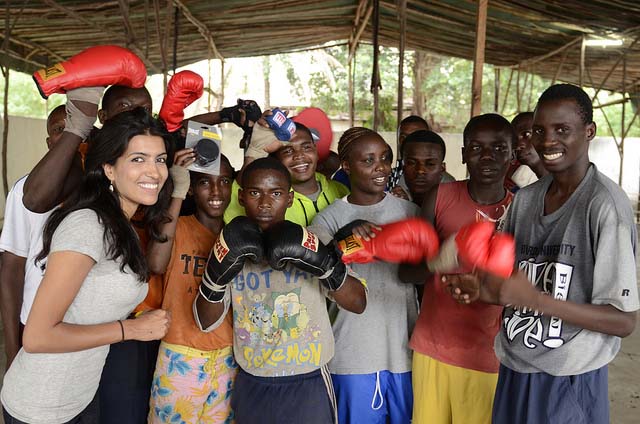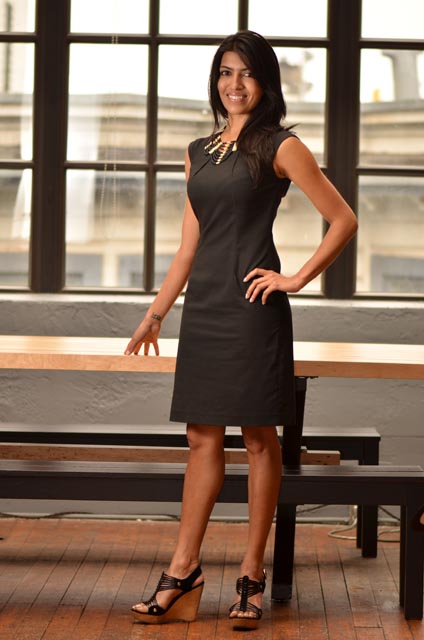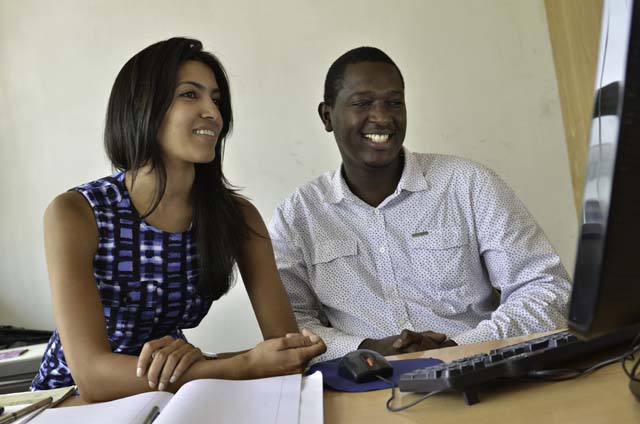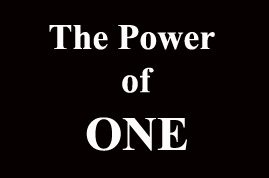Due to a non-functioning plugin, the FB Likes disappeared 🙁 – if you like the post you can re-start the Likes all over again!Have a brand-new Like button installed!
Losing Leila Janah
Sometimes when I have a lot of visitors on a decade old article I check to see what’s happening – usually it’s happy news, the person I wrote about has been promoted, won a major award or has her name up in lights. So when I saw many visitors clicking on my 2012 post about the amazing Leila Janah, a person I’ve admired the most in my writing career for her fearless beliefs and audacious thinking, I googled her. I was stunned to read that Leila, whom I had known in her 20’s, had passed away at 37. I felt bereft, as if it had been someone whom I had personally known. Please read this obituary and the article to see what a lot Leila managed to accomplish in her short life – hopefully it will inspire us all to pack a lot of living into our lives and make a difference.

Roaring Twenties: This is the first in a series on people in their 20’s whose impact has been felt in fields ranging from medicine to finance to the non-profit world. What makes them tick, what gets them through rough times and what are their dreams for the future?
First published in 2012
Leila Janah & Samasource: Funding from Google, Facebook, LinkedIn, Ebay – and US State Department
Leila Chirayath Janah, 29, recently bagged a whopping $ 1. 25 million in funding from Google for her company, Samasource. Add that in, and this small, non-profit has got close to $ 5 million from several major giant corporations including Rockefeller Foundation, Ford Foundation, Ebay, Cisco, Facebook, LinkedIn and even the US State Department.
Why have so many blue chip organizations put their faith in this little-known non-profit?
The idea behind Samasource is audacious – that the poorest of the poor are equal to the larger world community and quite capable of doing good work when they are entrusted with it, rather than just being given handouts and pity. In fact, Sama means equal in Sanskrit and it is Leila’s way of bringing the poor into the hi-tech world.

“Job creation is the single most important issue in the global struggle against poverty,” she says. “Samasource really is a powerful way to create jobs with pretty low investment and little degradation to the environment and can work in the poorest parts of the world.”
Leila who worked as a development economist at the World Bank and at various NGOS, saw firsthand the millions of jobs in outsourcing bloom for the middle class in the big cities of India, Mexico and Philippines. Why could the same model not be used for rural communities, slum dwellers and marginalized people?
Samasource: Equality for Marginalized People
Instead of blocking the poor out of the 21st century, Samasource involves them in technology production, bringing content and data series to the developing world. After training at local centers, workers submit micro-work via the SamaHub for feedback and quality control to the team in San Francisco.
“Our model provides direct income to thousands of people at a fraction of the cost of traditional aid programs and equips them with skills to succeed in the new economy,” says Leila. Samasource maintains sixteen delivery centers in India, Pakistan, Haiti, Uganda, South Africa, and Kenya in partnership with local entrepreneurs.
As CEO of Samasource, Leila has won multiple awards for innovative, out of the box thinking, including a 2010 World Technology Award. She’s also been recognized as Entrepreneur of the Year by the Social Enterprise Alliance, one of Fast Company’s 100 Most Creative People in Business, and is also on Forbes’ list of 30 under 30, the Rising Stars of Tomorrow.
Leila Janah on the Microwork Revolution at TEDxBrussels
Leila Janah: An Inheritance of Social Justice
Leila lives in Southern California but has inherited her passion for social justice from her family in Calcutta. Her Belgian grandmother hitch-hiked around the world after WW II and met her Bengali husband in Calcutta (Leila’s grand-uncle is the noted photographer Sunil Janah who took iconic photographs documenting India’s independence struggle.)
She loves to share stories of her great-grandfather who was a trial lawyer but whose office was always over-run by struggling folk whose cases he would fight pro-bono. Her grandmother’s autobiography has many of these tales, and she loves nothing better than to wear a piece of her old jewelry and feel a part of that life.
“The whole family had this Bengali socialist underpinning,” recalls Leila. “They were deeply interested in the broader concerns of humanity and as business people, they did their best to give back.”

Samasource: Unleashing Human Potential
Leila agrees that it was a challenge to get people to believe in her concept and also to recruit top people for the company. ” The nonprofit world has this stigma attached to it – it tends not to lead in terms of innovation or technology or design,” she says. “The typical nonprofit is focused on a social mission and these other things are tangential.”
She was determined, however, that Samasource be seen as an innovator and set up shop in Silicon Valley, targeting top corporate talent. Surprisingly, she found that people who are really good at what they do want to be in a challenging place where they can do their best work. She says, ” You can build an amazing culture which can get that performance out of people and it doesn’t have to be about money.”
As for the workers in poor communities, they have exceeded all expectations, with even refugees in camps in Kenya picking up Google and how to do its work in minutes. She says, “Everyone has a brain that is equally capable of doing amazing things – it just needs to be unleashed.”
Leila finds relief from her hectic lifestyle with physical activity including Latin dancing – and boxing! She is an avid boxer and coaches a girls’ boxing team and donates equipment for boxing gyms in Kenya. “I love boxing and the workout I get there!” she says. It also helps to have a ‘wonderful’ boy friend: Benjamin Lesley, an international development specialist, who is as calm and centered as she is frenzied.
“My dream is to make Samasource a business engine like Grameen,” says Leila who regards Muhammad Yunus a hero and is full of innovative ideas for harnessing the power of the poor in developing countries.
Leila Janah loves the photographs and stories of Old Calcutta handed down to her by her mother and grandmother. She says, “This work is really in keeping with the traditions of my ancestors.” Indeed, what gives her real satisfaction is being able to change the world, one worker, one family at a time…
(C) Lavina Melwani
( This article was first published in Hi Blitz)
Related Articles:

The Power of One: 5 Special Indian-Americans

Thinking Out of the Box – Cancer, Joblessness, Saving the Environment…

2 Comments
Leila really inspires to do something good for other people. In India we also have many people working hard selflessly and doing their bit to improve life of other people. Hope to see equality in the world. Thanks for sharing.
Truly inspirational Lavina and awesome innovative thinking… Thanks for sharing!